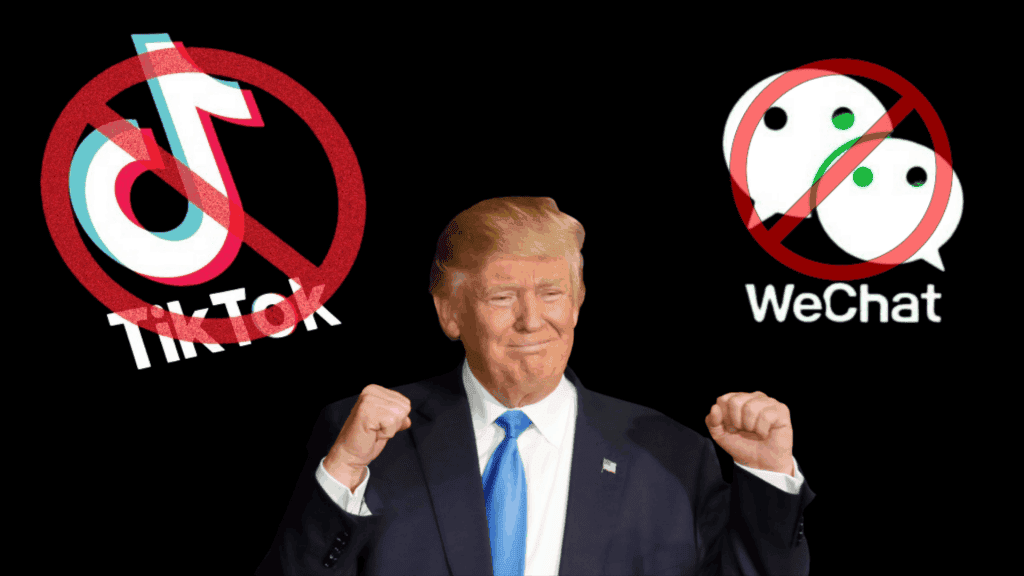A few months ago, President Trump issues a transaction ban on WeChat. However, what he did not see coming are the uprising and subsequent court injunctions. The three-judge panel of the U.S. Court of Appeals for the Ninth Circuit again dismissed the motion submitted by the U.S. Department of Justice today and refused to revoke the preliminary injunction previously issued by the federal district judge. This means that the US Department of Commerce is still unable to implement the WeChat ban issued on September 18 and remove WeChat from the Apple and Google App Stores in the United States. This is already the third defeat of the US government in the WeChat lawsuit.

U.S. attempt to ban WeChat – the history
On August 6, U.S. President Trump ordered the Ministry of Commerce to issue a WeChat ban on the grounds that it threatens US national security. This prohibits US individuals and companies from conducting any transactions involving this app. A group of US WeChat users therefore spontaneously formed the US WeChat User Association (UWUA)) and decided to sue the US government to protect their right to use the app. The association has no relationship with Tencent.
On August 21, the association formally sued President Trump and Secretary of Commerce, Ross, in the Federal Court for the Northern District of California. On August 28, UWUA filed a motion for a prohibition order, arguing that the WeChat prohibition violated the freedom of speech of Chinese Americans and constituted discrimination against the Chinese. By September 18, the U.S. Department of Commerce issued a specific implementation document for banning WeChat transactions, requiring WeChat to be removed from the Apple and Google App Stores in the United States from midnight on September 20.
WeChat has been victorious in three cases
First loss: On September 19, the Federal District Judge, Laurel Beeler, issued a preliminary injunction to prevent the Department of Commerce from implementing the order. The U.S. Department of Justice immediately submitted evidence. It requested Judge Beeler to withdraw this preliminary injunction. The department also appealed to the Court of Appeals for the Ninth Circuit. Its appeal is that Judge Beeler’s preliminary injunction should not stand.
Second defeat: On October 23, the Northern District of California again dismissed the US Department of Justice’s motion and maintained the preliminary injunction previously issued to prevent the Department of Commerce from implementing the order. Judge Beeler believes that the US government’s move to block WeChat would violate the freedom of speech of US WeChat users, especially the Chinese community.
Third defeat: On October 26, the Federal Court of Appeals for the Ninth Circuit also rejected the motion of the US Department of Justice and decided to maintain the preliminary injunction of the Federal District from Laurel Beeler. The three judges agreed that during the US government’s appeal, US national security will not suffer irreparable losses.
What option is left for the American government?
However, this does not mean that the US government will cave. They can also appeal to the U.S. Supreme Court, requesting the nine justices of the U.S. Supreme Court to veto the preliminary injunctions of the Ninth Circuit and the Federal District Court and allow the U.S. Department of Commerce to take measures to block WeChat.
WeChat has tens of millions of users in the United States. The core user group is more than 5 million American Chinese, especially the first generation of immigrants from mainland China. WeChat is the link between them and their relatives and friends in China. It is also their main channel for obtaining information. Furthermore, it is also a tool they need in their daily lives. Many first-generation Chinese immigrants watched Chinese news through the Chinese Information Official Account, rather than directly watching mainstream American media; while in New York and California areas where Chinese people gather, Chinese supermarkets and Chinese restaurants accept WeChat Pay.





